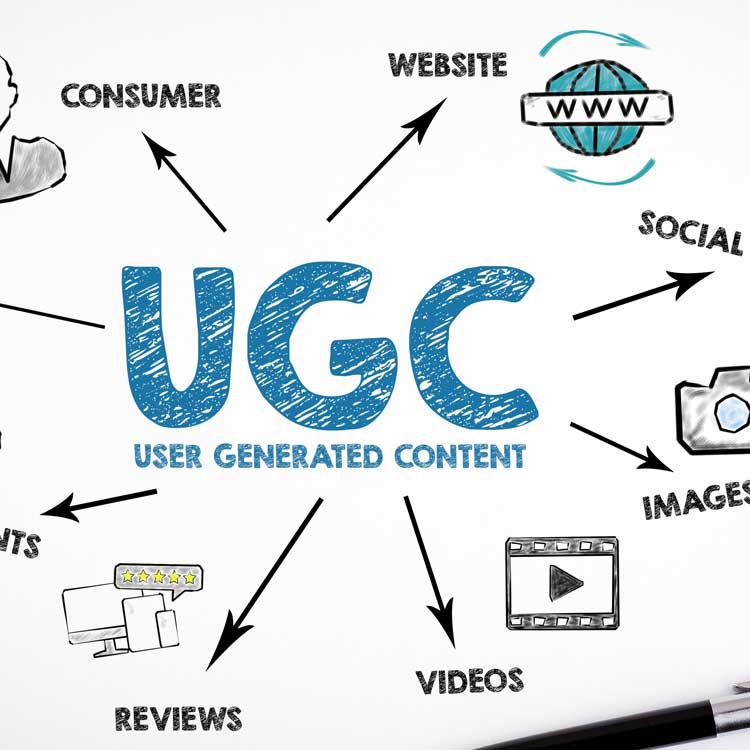Generating new leads and converting them into sales can be a challenging task, especially online. With the rise of online competitors and the ever-present threat of scams, phishing, and hacking, both businesses and consumers face significant hurdles.
However, by focusing on key elements that build online trust, small and medium businesses (SMBs) can significantly improve their conversion rates and establish a strong online presence.
1. Consistent Branding: Be Everywhere Your Customers Are
Consistency is crucial in building trust. Consumers often cross-reference multiple platforms before making a purchase, and a consistent presence across these platforms can make all the difference.
How To Achieve It:
- Company Website:
Ensure your website is well-designed, up-to-date, and reflects your brand’s values.
-
Google My Business:
Claim and optimize your listing to appear in local search results.
-
Social Media:
Maintain active profiles on platforms like Facebook, Twitter, LinkedIn, and Yelp.
-
Review Sites:
Encourage satisfied customers to leave positive reviews on sites like Yelp and Google Reviews.
Actionable Steps by Industry:
- Retail:
Use consistent branding across your e-commerce site, social media, and in-store displays. Highlight customer testimonials and product reviews to build trust.
-
Action: Claim profiles on Google My Business, Bing Places, Yelp, and Facebook Shops. Use Instagram and Pinterest to showcase products.
-
Example: A boutique clothing store can sync inventory across Instagram Shopping and its website, ensuring seamless browsing.
-
Action: Claim profiles on Google My Business, Bing Places, Yelp, and Facebook Shops. Use Instagram and Pinterest to showcase products.
- Restaurants:
Keep your Google My Business, Bing Places, and social media profiles updated with your menu, photos, and customer reviews. Consider adding a live chat feature to answer questions quickly.
-
Action: Optimize Google My Business with updated menus, hours, and photos. Leverage Yelp and OpenTable for reservations.
- Example: Post daily specials on Instagram Stories and link them to your website’s ordering page.
-
Action: Optimize Google My Business with updated menus, hours, and photos. Leverage Yelp and OpenTable for reservations.
- Hospitality:
Ensure your website and social media profiles showcase your amenities and services.
-
Action: Maintain active profiles on TripAdvisor, Booking.com, and Airbnb (if applicable). Highlight amenities consistently.
-
Example: Include customer testimonials and ratings from platforms like TripAdvisor.
-
Action: Maintain active profiles on TripAdvisor, Booking.com, and Airbnb (if applicable). Highlight amenities consistently.
- Construction:
Maintain a professional website with detailed project galleries and customer testimonials.
-
Action: List your business on Houzz, Angi, and LinkedIn.
-
Example: Share before/after project photos everywhere.
-
Action: List your business on Houzz, Angi, and LinkedIn.
- Healthcare:
Use a secure, HIPAA-compliant website and provide clear information about your services.
-
Action: Ensure profiles on Zocdoc, Healthgrades, and your website are updated with services and practitioner bios.
-
Example: Share patient testimonials and reviews on healthcare-specific directories.
-
Action: Ensure profiles on Zocdoc, Healthgrades, and your website are updated with services and practitioner bios.
- Professional Services:
Keep your LinkedIn profile active and professional.
-
Action: Provide detailed case studies and client testimonials on your website.
- Example: Build authority with LinkedIn articles and a Clutch.co profile.
-
Action: Provide detailed case studies and client testimonials on your website.
Benefit: Customers researching you will see a polished, unified brand—reducing doubt and increasing engagement.
2. Look the Part: Professionalism Wins Trust
First impressions are everything, and your online presence should reflect the professionalism and quality of your business. Your website is your digital storefront. A cluttered or outdated design screams “unreliable,” while a sleek, mobile-friendly site with clear navigation says, “We’ve got this.”
Key Elements for Every Industry:
- Professional Design:
Invest in a well-designed website that is visually appealing and easy to navigate. Adhere to the "three-click rule," ensuring users can find information within three clicks.
- Mobile Optimization:
60% of searches happen on mobile. Ensure fast loading times and easy navigation.
- Security:
Use SSL certificates to encrypt data and display security badges prominently. For healthcare, add HIPAA compliance notices.
- Error-Free Content:
Ensure your website content is free from errors to convey attention to detail and professionalism.
Industry-Specific Tips:
- Retail:
Use high-quality product images and clear, concise descriptions. Use filters to let customers sort by price or size. Ensure your checkout process is secure and user-friendly.
- Restaurants:
Use appetizing photos and clear menu descriptions. Ensure your online booking system is reliable and secure. Embed a reservation widget (like Resy) and clearly display hygiene certifications.
- Hospitality:
Showcase high-quality images of your facilities and services. Provide clear booking and reservation options.
- Construction:
Feature a portfolio with project details (e.g., timelines, budgets). Use detailed project photos and descriptions. Ensure your contact forms and payment gateways are secure. Add licensing/insurance info on the homepage.
- Healthcare:
Include patient portals and telehealth options. Use calming colors and clear CTAs like “Schedule Your Appointment.” Use a clean, professional design that complies with healthcare regulations. Provide secure patient portals and appointment booking.
- Professional Services:
Use a professional design that reflects your expertise. Provide detailed service descriptions and secure client portals. Add client testimonials and case studies to demonstrate expertise.
Benefit: A professional site reduces bounce rates by 50% and keeps visitors engaged positioning you as a leader in your field.
3. Transparency Builds Confidence: Provide Clear Policies & Contact Options
Transparency and accessibility are key to building trust. Customers want to know what to expect. Ambiguity breeds skepticism—clarity builds trust.
Must-Haves for All Businesses:
- Contact Information:
Clearly display your phone number, email, mailing address, and social media links. Use chatbots for 24/7 support.
-
Policies & Terms:
Clearly outline your policies for sales, support, returns, refunds, privacy, and shipping. For healthcare, explain HIPAA compliance..
Industry-Specific Tips:
- Retail:
Include a live chat feature for immediate assistance. Offer free returns? Say so on product pages, provide clear return and refund policies.
- Restaurants:
Include your phone number and email for reservations and inquiries. Provide clear policies for cancellations and dietary restrictions. List allergen info and link it to your online menu.
- Hospitality:
Include a live chat feature for booking assistance. Provide clear policies for cancellations and refunds.
- Construction:
Include a detailed FAQ section and clear project timelines. Provide clear payment, contract terms, outline project timelines, and provide in a downloadable PDF.
- Healthcare:
Provide a clear privacy policy and HIPAA compliance information. Offer secure patient communication options. Provide a clear FAQ about insurance acceptance and appointment prep.
- Professional Services:
Provide a detailed FAQ section and clear service terms. Offer secure client communication and document sharing. Publish pricing tiers or consultation fees upfront to avoid sticker shock.
Benefit: Transparent communication reduces hesitation and minimizes support inquiries; 73% of customers stick with brands that offer clear communication.
4. Offer Reviews, Information, Assistance, & Leverage Social Proof: Reviews Are Your Secret Weapon
Customer reviews and detailed information can significantly boost trust. 88% of consumers trust online reviews as much as personal recommendations. Showcase your wins!
Why It Matters:
- Reviews:
Encourage satisfied customers to leave reviews on platforms like Google, Yelp, and social media.
-
Resources:
Provide FAQs, user guides, and industry-related articles to help customers make informed decisions.
Industry-Specific Tips:
- Retail:
Highlight customer reviews and ratings on your product pages. Provide detailed product descriptions and user guides.
-
Example: Encourage Google Reviews and unboxing videos tagged on TikTok.
-
Example: Encourage Google Reviews and unboxing videos tagged on TikTok.
- Restaurants:
Share customer reviews and ratings on your website and social media. Provide a menu and dietary information.
-
Example: Incentivize Yelp reviews with a free dessert for feedback.
-
Example: Incentivize Yelp reviews with a free dessert for feedback.
- Hospitality:
Share guest reviews and ratings on your website and social media. Provide detailed descriptions of your amenities and services.
-
Example: Reshare guest Instagram posts on your website.
-
Example: Reshare guest Instagram posts on your website.
- Construction:
Share project reviews and ratings on your website and social media. Provide detailed project descriptions and before/after photos.
-
Example: Collect testimonials on Houzz and link them to project galleries.
-
Example: Collect testimonials on Houzz and link them to project galleries.
- Healthcare:
Share patient testimonials and ratings on your website and social media. Provide detailed descriptions of your services and treatment options.
-
Example: Feature patient success stories (with consent) on your site.
-
Example: Feature patient success stories (with consent) on your site.
- Professional Services:
Share client testimonials and ratings on your website and social media. Provide detailed case studies and service descriptions.
- Example: Ask clients for LinkedIn recommendations.
Pro Tip: Respond to all reviews—positive or negative—to show you value feedback.
Benefit: Businesses with 50+ reviews earn 4.7x more revenue. Authentic reviews act as peer endorsements, nudging prospects to choose you over competitors.
5. Stay Ahead with Security & Compliance
Data breaches cost businesses $4.45 million on average in 2023. Protect your customers—and your reputation.
Industry-Specific Security Moves:
-
Retail:
Use PCI-compliant payment gateways like Stripe and display trust badges at checkout.
-
Healthcare:
Invest in HIPAA-compliant hosting and encrypt patient intake forms.
-
Professional Services:
Secure client documents with password-protected portals.
Benefit: Robust security measures prevent breaches and reassure customers their data is safe.
The Take Away
Building online trust is essential for the success of any small or medium business. By maintaining a consistent brand presence, looking professional, providing clear contact and policy information, and offering reviews and resources, you can significantly improve your online credibility and conversion rates. This trust can lead to more sales, positive word-of-mouth, and a stronger online reputation.













